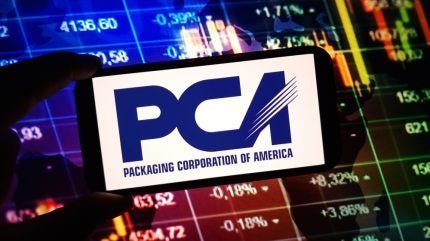
Institutional investors have recently shifted their positions in Packaging Corporation of America (NYSE: PKG), signalling changes in confidence that may reflect broader trends within the global packaging industry.
The moves come amid ongoing demand fluctuations, raw material price pressures, and evolving supply chain dynamics affecting paper and corrugated packaging manufacturers.

Discover B2B Marketing That Performs
Combine business intelligence and editorial excellence to reach engaged professionals across 36 leading media platforms.
Ascent Group LLC reduces stake
Ascent Group LLC reduced its holdings in Packaging Corporation of America by 14.8% during the second quarter, selling 2,089 shares and retaining 12,021 shares valued at around $2.27 million.
This reduction indicates a strategic recalibration, potentially reflecting cautious sentiment amid market volatility and rising input costs in the packaging sector.
Such divestments, even if modest, can influence perceptions of risk and stability among other investors.
Other institutional movements
Other major investors also adjusted their positions this quarter.

US Tariffs are shifting - will you react or anticipate?
Don’t let policy changes catch you off guard. Stay proactive with real-time data and expert analysis.
By GlobalDataMirae Asset Global Investments increased its stake by 12.4%, acquiring an additional 11,480 shares, while BlackRock reduced its holdings by 17.4%, selling roughly 1.56 million shares to hold a total of 7.42 million.
These contrasting movements suggest that investors are weighing the balance between potential growth in packaging demand and cost pressures from raw materials, energy, and transportation.
Implications for the packaging sector
Institutional ownership of Packaging Corporation of America remains high at approximately 89.8%, highlighting strong institutional interest in paper and corrugated packaging despite market uncertainty.
Changes in investor positions can act as a barometer for wider trends: reductions may signal caution in response to raw material price volatility or slowing demand in certain sectors, while increased holdings suggest confidence in long-term growth, including the expansion of e-commerce, sustainability-driven packaging, and reshoring of manufacturing in North America.
Shifts among large institutional investors could influence sector sentiment, potentially affecting funding, mergers, or acquisitions across packaging companies.
Analysts note that the packaging industry’s cyclical nature means that investor positioning often precedes changes in production, investment, and pricing strategies.
For companies like PKG, high institutional interest combined with selective divestment may underscore confidence in the company’s operational resilience while also signalling that caution is warranted given ongoing macroeconomic pressures.
These adjustments illustrate how investor behaviour in one leading packaging firm can reflect broader trends in the sector, including demand for corrugated and paper-based packaging, cost pressures, and market consolidation.
Stakeholders—from suppliers to smaller packaging firms—may interpret such movements as indicators of market confidence, risk appetite, and expectations for industry growth.





